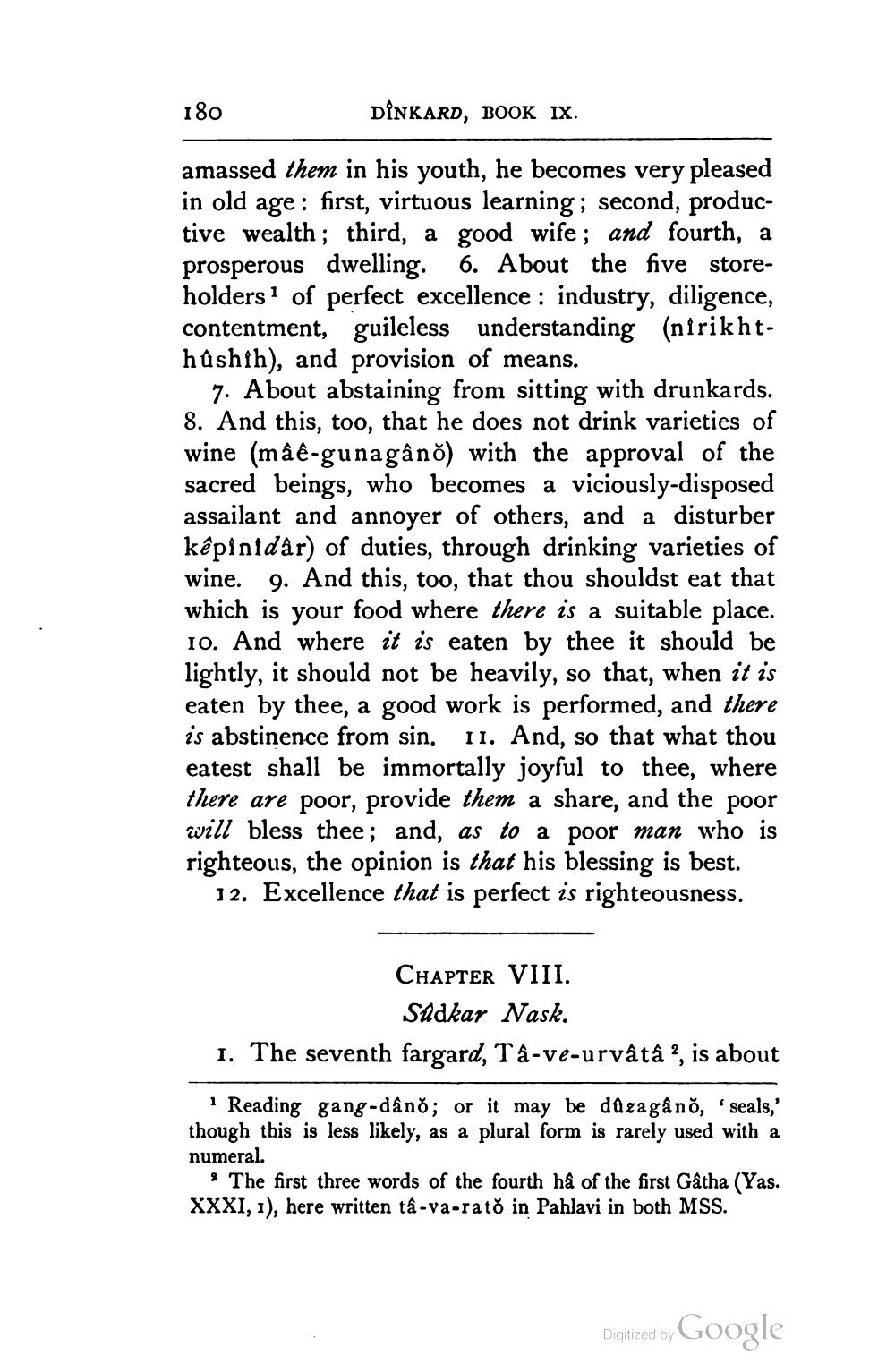________________
DINKARD, BOOK IX.
amassed them in his youth, he becomes very pleased in old age: first, virtuous learning; second, productive wealth; third, a good wife; and fourth, a prosperous dwelling. 6. About the five storeholders1 of perfect excellence: industry, diligence, contentment, guileless understanding (nirikhthushih), and provision of means.
7. About abstaining from sitting with drunkards. 8. And this, too, that he does not drink varieties of wine (mâê-gunagâno) with the approval of the sacred beings, who becomes a viciously-disposed assailant and annoyer of others, and a disturber kêpinidar) of duties, through drinking varieties of wine. 9. And this, too, that thou shouldst eat that which is your food where there is a suitable place. 10. And where it is eaten by thee it should be lightly, it should not be heavily, so that, when it is eaten by thee, a good work is performed, and there is abstinence from sin. 11. And, so that what thou eatest shall be immortally joyful to thee, where there are poor, provide them a share, and the poor will bless thee; and, as to a poor man who is righteous, the opinion is that his blessing is best. 12. Excellence that is perfect is righteousness.
180
CHAPTER VIII.
Súdkar Nask.
I. The seventh fargard, Tâ-ve-urvâtâ 2, is about
1 Reading gang-dânŏ; or it may be dûzagâno, 'seals,' though this is less likely, as a plural form is rarely used with a numeral.
* The first three words of the fourth hâ of the first Gâtha (Yas. XXXI, 1), here written tâ-va-rato in Pahlavi in both MSS.
Digitized by
Google




